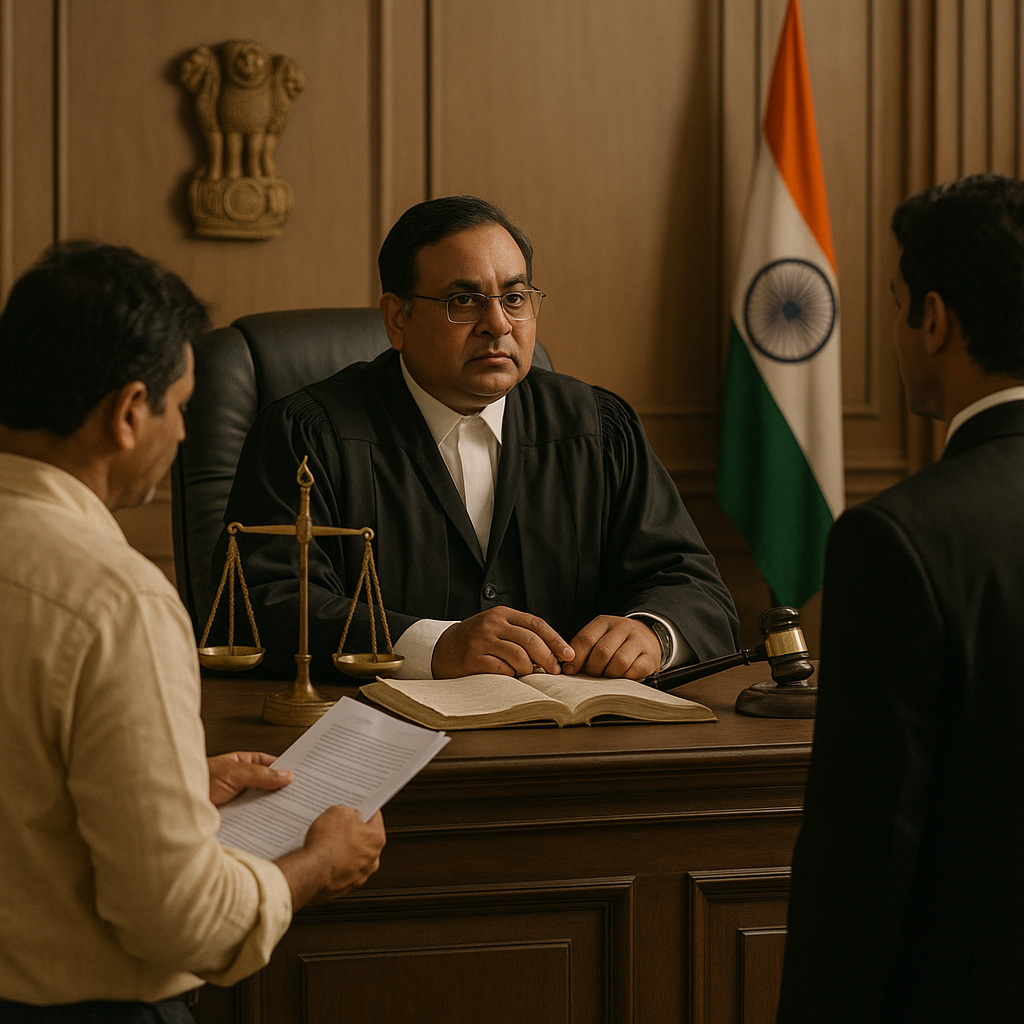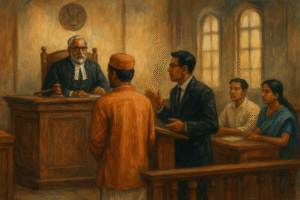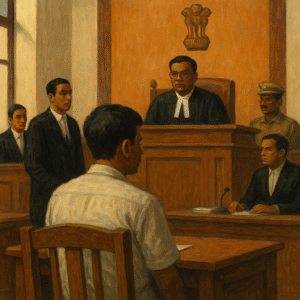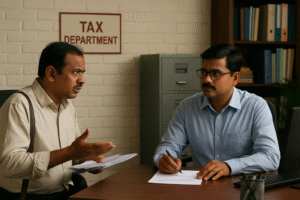Simplified Explanation of the Judgment
In a recent decision, the Patna High Court dismissed a writ petition filed by a group of contractors challenging the award of two government roadwork contracts to a competing bidder. The contractors had raised objections against the Rural Works Department of Bihar, claiming that the selected contractor (referred to as the 11th respondent) had submitted incomplete or non-compliant documents during the tendering process.
The petitioners were all registered contractors who had applied for multiple works under a Notice Inviting Tender (NIT) issued on 13 December 2023. They did not question their own disqualification in certain technical evaluations but solely challenged the awarding of work at Serial Nos. 1 and 8 of the NIT to the 11th respondent. Their core objections included:
- The selected bidder did not upload a mandatory affidavit declaring eligibility under Clause 20 of the NIT.
- A complaint they had filed under Clause 30 of the NIT was not considered before opening the financial bid.
- The bidder’s listed construction equipment had expired fitness certificates or was sold.
- Affidavits provided were on judicial stamp paper instead of non-judicial stamp paper, allegedly making them invalid.
The Court, however, thoroughly examined the documentary evidence and rejected the objections. It found that:
- The affidavit regarding eligibility had indeed been submitted, and any issue with stamp duty could be corrected by impounding and proper stamping as per the Indian Stamp Act.
- Complaints about the technical bid were made after the financial bid had been opened, rendering them procedurally invalid.
- Fitness certificates and tax receipts for vehicles indicated that they were operational or had since been renewed.
- Even if one of the three required tractors did not have current fitness proof, the bidder was allowed under the tender conditions to procure such equipment within 30 days of the issuance of the Letter of Acceptance (LOA). Failure to do so would attract forfeiture of the security deposit and cancellation of the award.
The Court concluded that the tendering authority had not deviated from essential conditions. It also stressed that cancelling the award to the lowest bidder (L1) would lead to unnecessary financial loss and delay for the State.
Significance or Implication of the Judgment
This judgment reinforces the principle that courts will not interfere in administrative decisions related to government contracts unless there is a clear violation of essential conditions. It balances strict compliance with tender rules against practical flexibility to ensure timely public works and efficient use of public funds.
For contractors, this judgment clarifies that minor technical deficiencies—like the absence of updated vehicle fitness documents—do not automatically invalidate a bid if rectification is possible under the terms of the NIT.
It also signals to government departments that fair opportunity, transparency, and strict adherence to procedures (like resolving complaints before financial bids are opened) remain judicial expectations.
Legal Issue(s) Decided and the Court’s Decision
- Was the 11th respondent’s bid valid despite alleged document lapses?
- Yes. The Court found that the required documents had either been provided or could be cured within the permissible window post-LOA.
- Was the lack of consideration of the complaint a procedural flaw?
- No. The complaint was filed late—after the financial bids were opened—making it invalid.
- Did the use of judicial stamp paper invalidate the affidavits?
- No. The affidavits could be regularized by impounding under the Stamp Act.
- Should the tender be canceled and awarded to the next bidder or re-tendered?
- No. This would lead to financial loss and delay, with no breach of essential eligibility criteria found.
Judgments Referred by Parties (with citations)
- Ramana Dayaram Shetty v. International Airport Authority of India, (1979) 3 SCC 489
- M/s Ashok Construction v. State of Bihar, CWJC No. 4139 of 2024, decided on 05.03.2024
- Sona Engicon Pvt. Ltd. v. State of Bihar, CWJC No. 13539 of 2024, decided on 10.09.2024
Judgments Relied Upon or Cited by Court (with citations)
- Poddar Steel Corporation v. Ganesh Engineering Works, (1991) 3 SCC 273
- B.S.N. Joshi & Sons Ltd. v. Nair Coal Services Ltd., (2006) 11 SCC 548
Case Title
M/s Jay Mata Di Enterprises & Ors. v. State of Bihar & Ors.
Case Number
CWJC No. 12254 of 2024
Coram and Names of Judges
Hon’ble Mr. Chief Justice K. Vinod Chandran
Hon’ble Mr. Justice Partha Sarthy
Names of Advocates and who they appeared for
- For the Petitioners:
Mr. Ashish Giri, Advocate
Mr. Sarveshwar Tiwary, Advocate
Ms. Pragati Patra, Advocate
Mr. Sumit Kumar Jha, Advocate
Ms. Riya Giri, Advocate - For the Respondents:
Mr. P. K. Shahi, Advocate General
Mr. Ramakant Sharma, Sr. Advocate
Mr. Vikas Kumar, Advocate
Mr. Sourav Suwan, Advocate
Link to Judgment
If you found this explanation helpful and wish to stay informed about how legal developments may affect your rights in Bihar, you may consider following Samvida Law Associates for more updates.







